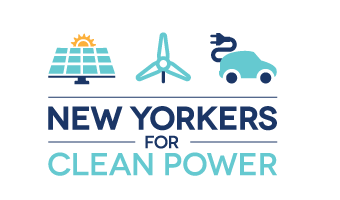Click on Each Topic Below to Learn More:
NYCP’s Comments on the Scoping Plan
View NYCP’s official comments by Policy Director, Jen Metzger here.
What is the Draft Scoping Plan?
The Draft Scoping Plan is the State’s plan to reach the goals of New York’s nation-leading Climate Leadership and Community Protection Act (or Climate Act, for short). The Climate Act commits New York to:
- Reduce GHG emissions by 40% by 2030 below 1990 levels, and achieve net-zero emissions by 2050.
- Generate 70% of electricity from renewable resources by 2030, and achieve a fossil fuel-free grid by 2040.
- Ensure a just and equitable transition, including dedicating 35% of the benefits of clean energy investments to Disadvantaged Communities, with the goal of 40%.
The Draft Scoping Plan was developed by the State’s 22-member Climate Action Council, and will be revised on the basis of public comments. Once finalized, the Scoping Plan will shape state laws, regulations, and government-wide decision-making for years to come. On December 20, the Council voted to release the Draft Scoping Plan for public comment. January 1, 2022 marked the beginning of a comment period to receive feedback from the public as the Council works to develop and release a final scoping plan by January 1, 2023. The public comment period closed July 1, 2022.
What are the Disadvantaged Communities Criteria?
The CLCPA requires historically underserved communities that are disproportionately affected by climate change to be prioritized by New York’s efforts to decarbonize the economy. In the act, there are specific equity requirements for ensuring Disadvantaged Communities (DACs) are included in the transition to clean energy. The Climate Act mandates that DACs must receive at least 35% of the benefits from the state’s clean energy investments, with a goal of 40%.
Accurately defining Disadvantaged Communities is crucial to ensure all underserved communities benefit from the Climate Act. The criteria for defining DACs was created by the Climate Justice Working Group (CJWG) and is currently open for public comment. The deadline to submit a comment is Friday, August 5th and must be done here.
Resources for Submitting a Comment:
- Recording of “NYCP Teach-in on Disadvantaged Communities Comment Period” and Slides
- Recordings of Past NYSERDA Public Hearings
Why is it important that I participate?
Your participation is essential to ensuring that the Scoping Plan is ambitious enough to meet the state’s climate goals. The fossil fuel industry and its allies have launched a well-funded misinformation campaign to undermine public support and weaken political will for an effective climate plan. The industry’s singular goal is to keep New York hooked on fossil fuels. We need to show decision-makers that New Yorkers support the transition to a clean energy economy and a Scoping Plan that will get us there.
Meeting New York’s climate goals will not only dramatically reduce climate-damaging emissions but will also improve public health, economic opportunities, and quality of life for New Yorkers. Implementing the Climate Act is expected to save between $50 billion and $120 billion, alone, in public health costs due to improvements in local air quality. It is also expected to create nearly 190,000 new jobs across the state by 2030 and close to 270,000 by 2050, with a 10 to 1 ratio of jobs created to jobs displaced. Currently, well over half of what we spend on energy leaves the state, primarily for fossil fuels. The clean energy transition will help keep energy spending local, in New York and in our communities.
While the public comment period for the Draft Scoping Plan closed July 1, 2022, the public comment period for the disadvantaged communities (DAC) criteria is open. The Climate Act charged the Climate Justice Working Group (CJWG) with the development of criteria to identify disadvantaged communities to ensure that frontline and otherwise underserved communities benefit from the state’s historic transition to cleaner, greener sources of energy, reduced pollution and cleaner air, and economic opportunities. The public comment period for DAC criteria is open through August 5, 2022.
How can I Participate?
You can view the Climate Justice Working Group’s DAC Criteria Fact Sheets, Documents, Supplemental Materials, recordings of Information Sessions, and submit your comments on the Climate Justice Working Group’s Website. You can watch NYCP’s Teach-In on the DAC Criteria public comment period here. Comments must be submitted by August 5.
Additional Public Comment Resources
DAC Criteria Resources:
Scoping Plan Resources:
- The Scoping Plan and Related Studies
- Slide overview from the NYS Department of Environmental Conservation
- Request NYCP’s Green the Grid & Electrify Everything Presentation for your Community Group or School
- Recording of Breaking It Down: New York’s Proposed Climate Plan, and Why You Need to Get Involved and slides.
- Recording of “Understanding the Climate Action Council Draft Scoping Plan“.
- Recording of “Your Role in New York’s Climate Action”.
- Recording of “Driving Change in the Transportation Sector” and slides.
- Recording of “Your Role in New York’s Climate Action.“
- ACE-NY Clean Energy Webinar Series: New York’s Draft Climate Plan–the Electricity Sector
- NYS Climate Action Council
Additional Public Comment Resources:
- The Scoping Plan and Related Studies
- Slide overview from the NYS Department of Environmental Conservation
- Request NYCP’s Green the Grid & Electrify Everything Presentation for your Community Group or School
- Recording of Breaking It Down: New York’s Proposed Climate Plan, and Why You Need to Get Involved and slides.
- Recording of Agriculture in the NY Climate Act
- ACE-NY Clean Energy Webinar Series: New York’s Draft Climate Plan–the Electricity Sector
- NYS Climate Action Council

